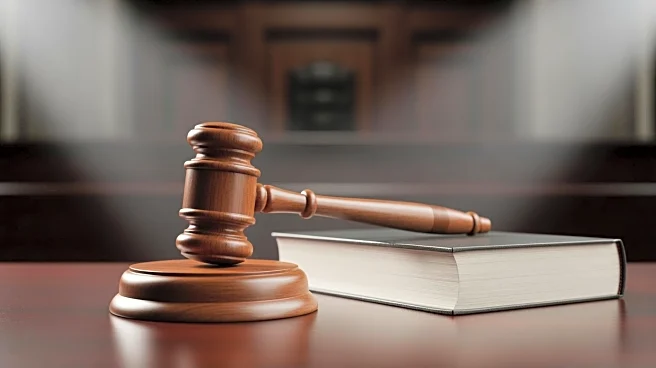What's Happening?
Justice Minister Yariv Levin is encountering difficulties in appointing a special investigator to oversee the case involving former military advocate general Yifat Tomer-Yerushalmi. Despite the High Court of Justice granting Levin the authority to appoint an investigator,
the stringent criteria set by the court have made it challenging to find a suitable candidate. The investigator must be a state employee, a seasoned legal professional with significant criminal law experience, and free of political affiliations. The reluctance of potential candidates is attributed to fears of public scrutiny and perceptions of political motivations.
Why It's Important?
The appointment of an investigator is crucial for ensuring transparency and accountability in the legal proceedings involving high-profile figures. The case has significant implications for the Israeli legal system, as it involves allegations of misconduct within the Military Advocate General's Office. The inability to appoint an investigator could hinder the progress of the investigation and affect public trust in the justice system. The situation also highlights the challenges of balancing legal integrity with political pressures.
What's Next?
The Knesset Constitution Committee, chaired by MK Simcha Rothman, is leveraging the High Court ruling to advance legislation that would split the role of attorney general and establish a separate 'special prosecutor' position. The committee is scheduled to hold another session to promote the bills, which have already passed a preliminary reading. This legislative effort aims to address the perceived conflicts of interest and enhance the independence of legal investigations.
Beyond the Headlines
The case underscores the complexities of legal and political interactions in Israel, where high-profile investigations can become entangled with political agendas. The situation raises questions about the independence of legal institutions and the influence of political figures on judicial processes.

















